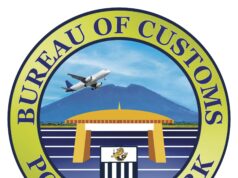BIR Revenue Region 4, led by Regional Director Jethro Sabariaga, filed two separate cases against Bounty Fresh Food Inc. (Bounty Fresh) based in Gerona, Tarlac and the Tiongco High-Tech Construction Materials Corportation (High-Tech Corp.), and their presidents, for operating without prior registration with their respective BIR revenue district offices.
Bounty Fresh is a stock company registered with the Securities and Exchange Commission, with registered address at 179 Mariano Ponce St., Caloocan City.
The company holds out itself, together with its sister company, Bounty Agro Ventures, Inc., as one of the biggest and most reliable suppliers of value-added chicken products, fresh-chilled chicken and table eggs to various hotels, restaurants, institutional food companies as well as supermarkets and live markets nationwide.
High-Tech Corp., on the other hand, is engaged in the sale and manufacturing of construction materials particularly cement products. It operates a cement manufacturing plant in Barangay San Jose Gumi, Lubao, Pampanga.
Sabariaga said Bounty Fresh has started its business operation in Tarlac in 2013 with a total declared sales of P169,318,595.80 for four consecutive years.
A tax mapping and tax compliance verification drive held by the RDO 17B (Paniqui, Tarlac) on March 10, 2017 prompted the criminal complaint against Bounty Fresh.
The criminal complaint against High-Tech Corp., meanwhile, stemmed from a third party information received by the RDO 21B (South Pampanga), headed by revenue district officer Erlinda Victorino.
Upon verification with the Municipal Government of Lubao, RDO 21B learned that High-Tech Corp. has been operating since January 2015 with declared total gross receipts of P5 million.
Sabariaga said the two firms are in clear violation of Section 258 of the National Internal Revenue Code of 1997 for “Unlawful Pursuit of Business.”
Sabariaga explained that companies should register with the BIR on the same time that they secure local business permits.
Aside from paying penalties accrued from unpaid taxes since the start of their operations, owners of the criminally- charged companies may also face imprisonment from six months to two years.
Companies, though, can negotiate with the BIR for the withdrawal of the cases but they need to settle first all their obligations, and applicable penalties and surcharges.
In the case of Bounty Fresh, which has supposed tax liabilities exceeding P1 million, the embattled firm should report to the BIR Central Office.
Tax dues of companies below P1 million are relegated to the regional revenue offices.
“We want these firms to settle their obligations. We do not want them to close shops because their taxes are important to our economy. But, after several appeal for them to comply with our tax laws and they still fail to settle their dues, the BIR has no other recourse but to file the necessary charges,” Sabariaga said.
The cases against Bountry Fresh and High-Tech Corp. are the sixth and seventh cases, respectively, filed by BIR in the region this year.




